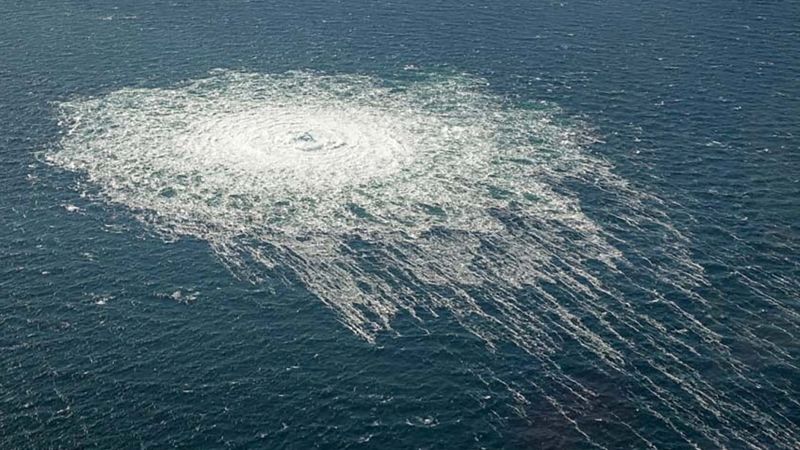CNN
—
Ukraine has denied any involvement in the sabotage of the Nord Stream pipelines following a media report citing new intelligence that a “pro-Ukrainian group” may have been behind last year’s attack targeting Russia’s gas deliveries to Europe.
The dismissal by a senior Ukrainian official on Tuesday came in response to a report by the New York Times, which cited new intelligence that had been reviewed by United States officials.
“Although I enjoy collecting amusing conspiracy theories about (the Ukrainian) government, I have to say: (Ukraine) has nothing to do with the Baltic Sea mishap and has no information about ‘pro-(Ukraine) sabotage groups,’” Mykhailo Podolyak, top adviser to Ukrainian President Volodymyr Zelensky, wrote on Twitter.
The New York Times said the new intelligence reviewed by US officials suggested a group loyal to Ukraine but acting independently of the government in Kyiv were involved in the operation.
Mystery has surrounded who might be responsible for the brazen sabotage last September which damaged two pipes transporting Russian gas into the European Union and targeted a crucial source of revenue for Moscow. Both pipelines were closed at the time of the attack, which came months after Russia’s invasion of Ukraine.
A source familiar with the US intelligence told CNN the assessment was not made with high confidence and is not the predominant view of the intelligence community, and that the US has not yet identified a culprit for the attack.
There is a section of the US intelligence community that believes that pro-Ukrainian actors would have had the motive to sabotage the pipelines because of how Russia was weaponizing them against Ukraine and Europe.
The intelligence community has no evidence, however, that Ukrainian leaders, including Zelensky, had any knowledge of or involvement in the pipeline sabotage, the source said.
The incident, in which underwater explosions occurred before the pipelines burst in several places, remains a major point of contention between Russia and the West.
The pipelines which link Russia and Germany via the Baltic Sea to funnel gas from Russia into the European Union were controversial long before the Kremlin waged war on Ukraine, largely because of fears around European reliance on Russian energy.
Their damage became yet another twist in the energy standoff that erupted after the invasion as Europe sought to wean itself from Russian fuel.
Multiple investigations by European authorities are on-going.
Swedish prosecutors in November confirmed the blasts at the pipelines were an act of sabotage after investigators uncovered evidence of explosives at the sites, but their preliminary investigation had yet to determine any charges.
Speaking to reporters on Tuesday, US National Security Council coordinator for strategic communications John Kirby referred questions to investigating Europeans authorities and said he was “not going to get ahead of that investigative work.”
“Several our European partners – in fact, three of them in Germany, Sweden and Denmark – have already opened investigations into what happened with the Nord Stream 2 pipeline, and those investigations are not closed. They’re still hard at work on that,” Kirby said.
In the days following the incident, sightings of Russian vessels operating in the area where the leaks occured raised suspicions about the potential involvement of Russia, which at that time drew attention from both European and US officials as the only actor in the region believed to have both the capability and motivation to deliberately damage the pipelines.
Russia has publicly denied striking the pipelines and blamed the West for the still unexplained explosions. In September a spokesman called allegations against Moscow “predictably stupid and absurd.”
During a meeting of G20 Foreign Ministers in New Delhi earlier this month, Foreign Minister Sergey Lavrov insisted on the necessity of a “fair and prompt investigation” into the explosions.
